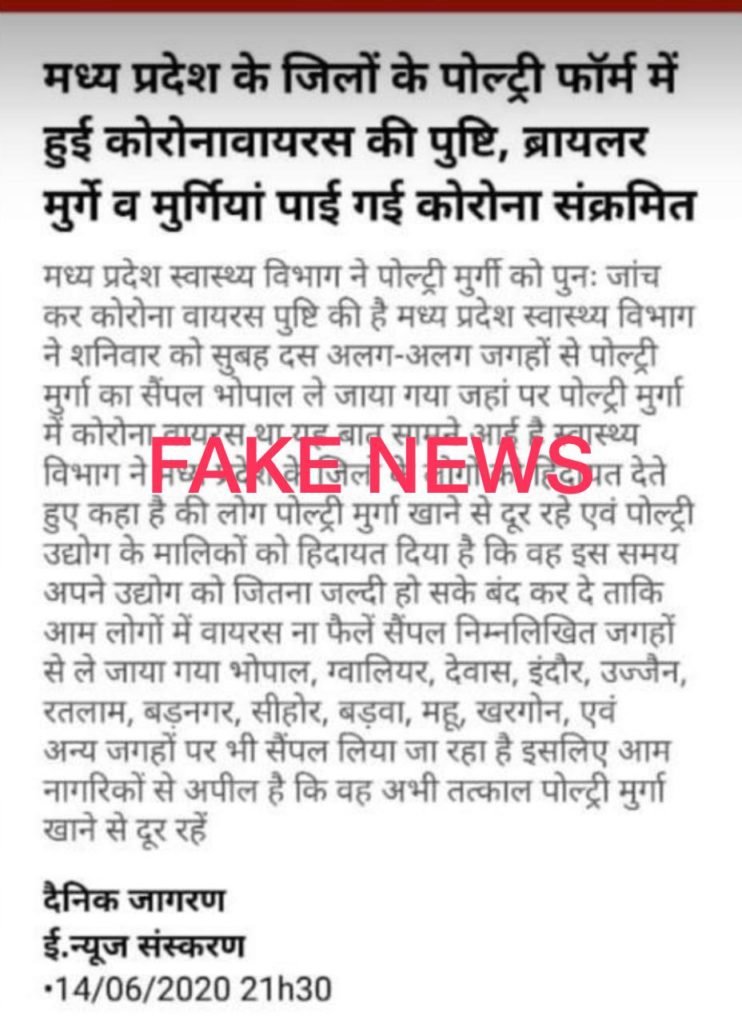Fake News Buster: The viral clipping is fake and neither has the state health department collected poultry chicken samples for testing. Madhya Pradesh’s Animal Husbandry Department termed the reports doing rounds on social media that coronavirus was found in chicken in some poultry farms in the state as “baseless”. It has also made it clear that the consumption of chicken was completely safe and does not cause infection.

A newspaper clipping claiming that the Madhya Pradesh Health Department has found Coronavirus in poultry chicken samples it tested, is fake. No such report was carried by Hindi daily Dainik Jagran and the Department of Animal Husbandry & Dairying, Madhya Pradesh also confirmed that no samples of poultry chicken were tested for COVID-19. The image going viral has the date June 14, 2020, on it with a report claiming that the Madhya Pradesh Health Department had taken samples of poultry chicken from ten different places in the state and found them to be positive for Coronavirus. The report further claims that the state health department has advised people to avoid eating chicken. The headline when translated reads, “Madhya Pradesh Health Department’s confirms coronavirus after retesting of poultry hen, Broiler chicken contains coronavirus.”
“Director of the animal husbandry department, RK Rokde, citing a letter issued by the state health department in this regard, has refuted the claim made in the news report that coronavirus was found in chicken,” a Public Relations department official said.
According to the official, Rokde has made it clear that the consumption of poultry products was completely safe. “The animal husbandry department said that this news is completely misleading and baseless. No guidelines or warning letters have been issued by the health department regarding chicken or closure of poultry farms,” the official added.
Pandemic Is Amplifying India’s Fake News Crisis
While fake news that incites communal and regional tension has become a common and often commented upon feature of politics in India, another form of fake news that directly affects the health of millions of Indians who are students of ‘WhatsApp University’ is gaining traction.
While there is no universally accepted definition of the term “fake news”, the definition provided by the Ethical Journalism Network is thus far the most comprehensive. It defines fake news as “information that is likely to be perceived as news, which has been deliberately fabricated and is disseminated with the intention to deceive others into believing falsehoods or doubting verifiable facts”.
Every day, hundreds of fake news messages, images, and videos are shared on social media platforms promoting false cures for diseases. With the recent arrival of the novel coronavirus that has killed thousands of people across the world, it seems evident that the fake news factories are now on steroids. Medical fake news seems to escalate especially in times of health scares such as the current COVID-19 pandemic.
There must be a higher threshold of responsibility for people not to peddle such fake news. In times like this, it is important that people should not share “Fake News” of cures and cause on social media or on Whatsapp. Make an informative decision before forwarding a message. Stop the spread of Coronavirus and Fake News.
